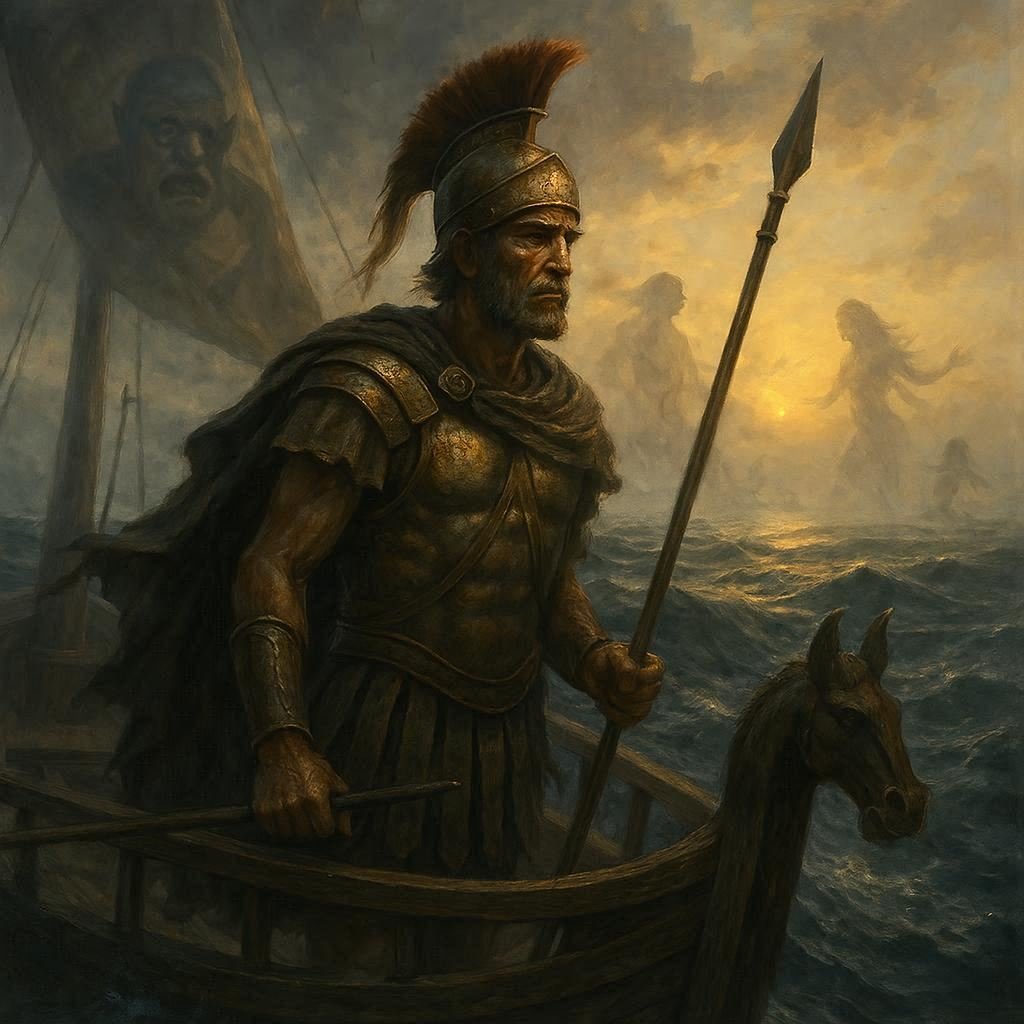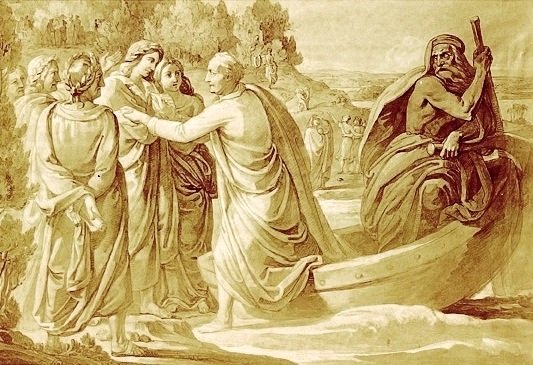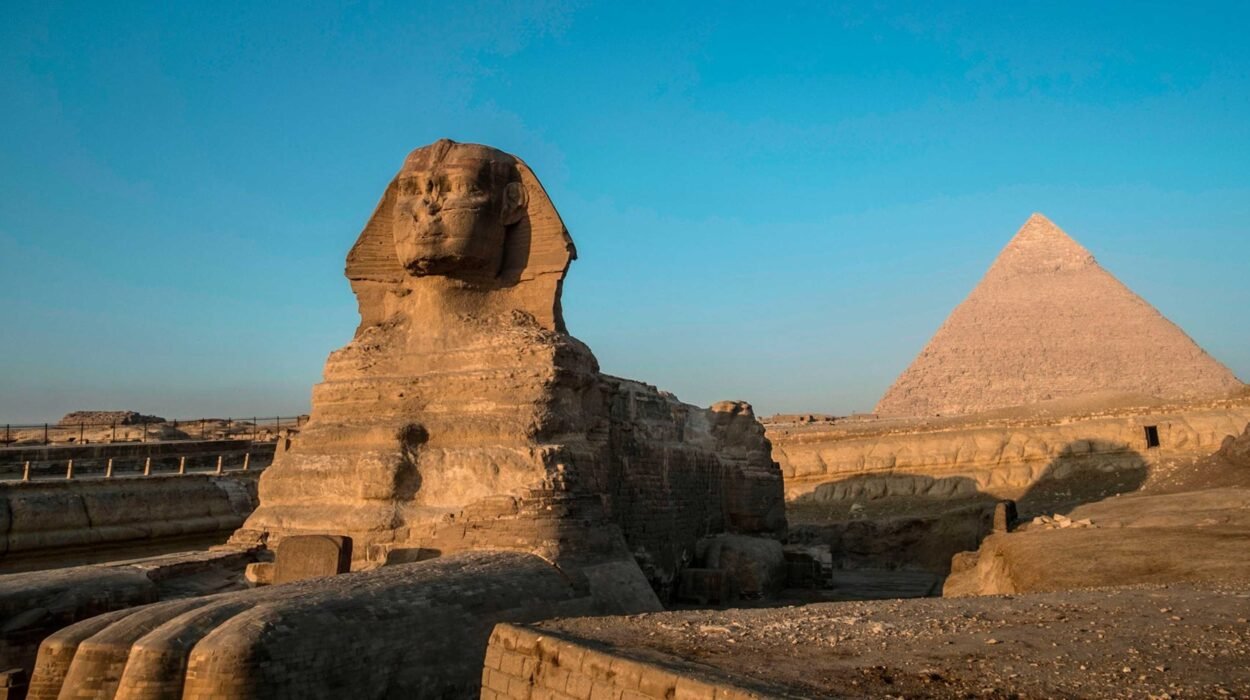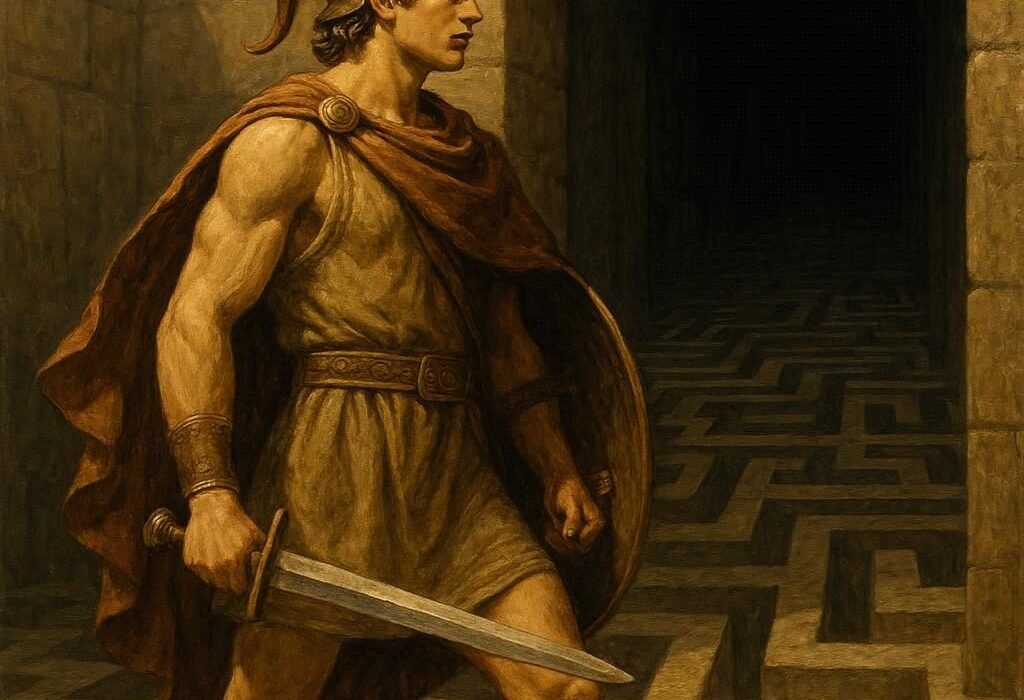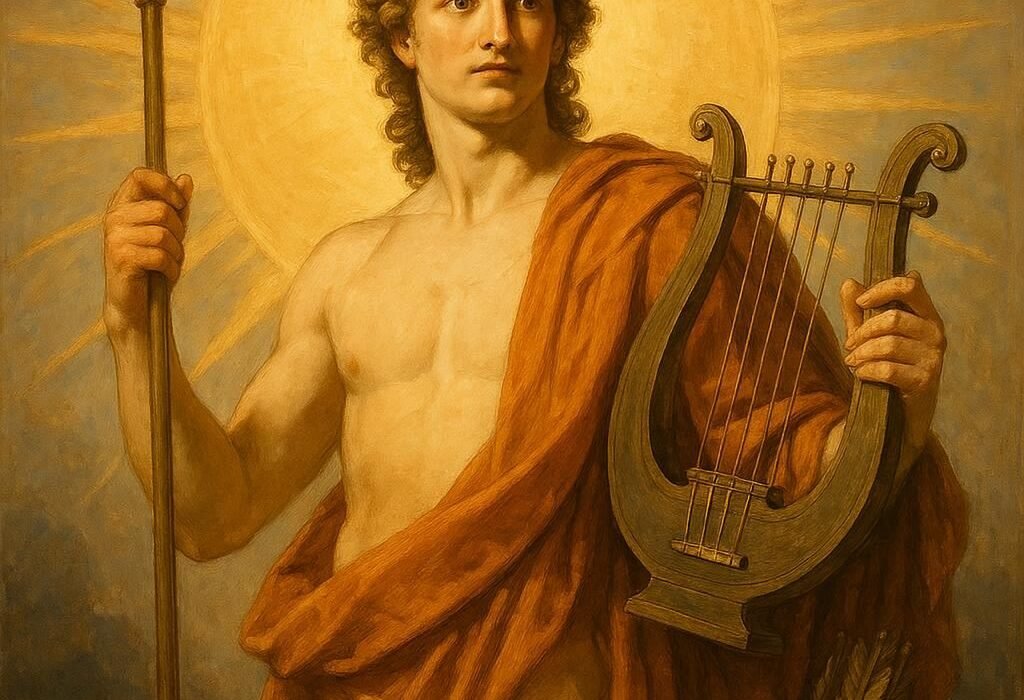Every culture has its epic stories, but few tales have shaped the imagination of the Western world as profoundly as The Odyssey. At its center stands Odysseus, king of Ithaca, warrior of Troy, and wanderer of the seas. His journey is not simply a tale of battles, monsters, and gods, but a deep meditation on human resilience, cunning, loyalty, and the eternal longing for home.
The story of Odysseus is more than three thousand years old, yet it continues to breathe life into literature, philosophy, and culture. Each generation finds something new in his adventures—whether it is the thrill of overcoming the impossible, the pain of longing for loved ones, or the lesson that even the strongest heroes are bound by fate and mortality.
The Odyssey is not just an ancient Greek poem; it is a mirror in which humanity has long seen its own struggles. And at the heart of this mirror is Odysseus himself, flawed and brilliant, courageous and vulnerable, endlessly fascinating.
Homer and the Birth of an Epic
The tale of Odysseus comes from one of the greatest poets who ever lived: Homer. Though scholars still debate whether Homer was a single person or a tradition of poets, his name has become synonymous with two epic poems: The Iliad and The Odyssey.
The Iliad tells the story of the Trojan War, focusing on rage, honor, and the destruction brought by pride. The Odyssey, by contrast, is about what comes after war—the long, winding journey back to peace and home. While The Iliad embodies the heat of battle, The Odyssey embodies the quiet endurance of survival.
Composed around the 8th century BCE, The Odyssey was sung by bards who memorized its thousands of lines. It was not just entertainment but also cultural memory, teaching values of heroism, loyalty, and cunning. Homer’s epics became the foundation of Greek education, shaping philosophy, politics, and even ideas of morality.
Odysseus: The Man of Many Turns
Unlike the raw, almost godlike power of Achilles in The Iliad, Odysseus is defined not by brute strength but by intelligence and adaptability. Homer calls him polytropos—“the man of many turns.” He is a strategist, a trickster, a thinker, and a survivor.
It was Odysseus who conceived the idea of the Trojan Horse, the cunning stratagem that led to the fall of Troy. But cunning has its dangers. His intelligence often saves him, yet it also leads him into greater trials. His cleverness can slip into arrogance, and his pride sometimes brings the wrath of gods upon him.
This duality makes Odysseus deeply human. He is brilliant, but he makes mistakes. He is loyal to his wife, Penelope, yet he falters in temptation. He longs for home, yet he lingers when distracted by power or pleasure. He is not perfect—but it is precisely his imperfection that makes his story timeless.
The Call of the Journey
The Trojan War lasted ten years, and Odysseus fought bravely among the Greeks. But when the war ended, his journey home should have been simple. Ithaca, his island kingdom, awaited him. Penelope, his faithful wife, and Telemachus, his young son, longed for his return.
Yet Odysseus’ homecoming became another ten-year saga, stretching his endurance and testing his soul. Unlike the straightforward war of Troy, this new struggle was chaotic, filled with shifting dangers. His voyage across the Mediterranean became a symbol of the unpredictable and often cruel nature of life itself.
The journey began with hope, but storms, temptations, and divine grudges soon turned it into an odyssey that would test every fiber of his being.
The Wrath of Poseidon
At the core of Odysseus’ troubles lies the god of the sea, Poseidon. After blinding the Cyclops Polyphemus—who happened to be Poseidon’s son—Odysseus earned the god’s hatred. From that moment onward, every wave and storm seemed to conspire against him.
Poseidon represents the untamable force of nature, the ocean’s vast and merciless unpredictability. To cross his domain is to face forces beyond human control. Odysseus, with all his cunning, could not outwit the sea itself. His survival depended not only on his intellect but on endurance, patience, and often sheer luck.
Encounters with the Supernatural
The brilliance of The Odyssey lies in its blending of the human and the divine. Odysseus’ journey is populated with creatures, enchantresses, and gods who embody the dangers of both external threats and inner temptation.
He faced the Lotus-Eaters, whose fruit offered forgetfulness and the seductive escape from responsibility. He battled Polyphemus, the Cyclops, whose savage strength mirrored humanity’s own barbaric potential. He resisted the deadly songs of the Sirens, temptations of knowledge and desire that could lead to ruin.
Circe, the enchantress who turned men into swine, symbolized both the lure and the danger of indulgence. Calypso, the nymph who held him captive for years, embodied the bittersweet prison of comfort and pleasure.
Each encounter was not just a physical challenge but a spiritual and moral one. Odysseus was forced to decide again and again between indulgence and discipline, pride and humility, despair and perseverance.
Penelope and Telemachus: The Anchors of Ithaca
While Odysseus wandered, life in Ithaca did not stand still. Penelope, his wife, became a figure of astonishing patience and fidelity. For twenty years, she resisted the advances of suitors who filled her halls, consuming her household’s wealth while demanding she choose a new husband.
Through wit and cunning of her own, Penelope delayed them. Her famous weaving trick—unraveling at night what she wove by day—kept her promise to Odysseus alive. She became the mirror of her husband’s cleverness, showing that resilience was not only in the battlefield or the sea but also in the quiet endurance of home.
Telemachus, their son, grew from a boy into a man during his father’s absence. Guided by the goddess Athena, he embarked on his own mini-odyssey to seek news of his father. His journey symbolized the coming of age, the search for identity, and the inheritance of responsibility.
Athena: The Divine Protector
If Poseidon was Odysseus’ divine enemy, Athena was his celestial ally. The goddess of wisdom, war, and strategy saw in Odysseus a kindred spirit. She guided him through dangers, encouraged Telemachus, and protected Penelope.
Athena represents the intellectual and moral compass of the epic. Where Poseidon symbolizes chaos, Athena symbolizes order. Her presence is not only divine intervention but also a reflection of the power of wisdom, perseverance, and justice in the human struggle.
The Descent into Darkness
Among the most haunting parts of The Odyssey is Odysseus’ journey into the Underworld. There he sought the prophet Tiresias, who would reveal his path home. The descent is symbolic of death and rebirth, a confrontation with mortality and fate.
In the shadows of Hades, Odysseus met fallen heroes, including Achilles, who confessed that even the greatest warrior would prefer a humble life on Earth over glory in death. These encounters deepened the themes of the epic: the cost of war, the fragility of human life, and the longing for simple existence over eternal fame.
The Return and the Revenge
After years of wandering, Odysseus finally returned to Ithaca, disguised as a beggar. His palace was overrun by suitors, his household dishonored. With Athena’s guidance and Telemachus at his side, Odysseus devised a final act of cunning and justice.
The bow contest, where only Odysseus could string his weapon, became the turning point. Once revealed, he unleashed his fury, slaying the suitors and reclaiming his home. The violence was brutal but symbolic—a restoration of order, a cleansing of corruption, a triumph of perseverance.
His reunion with Penelope was not immediate; she tested him with one final act of wit, asking about their secret bed carved from a living olive tree. Only Odysseus knew its truth, and in that recognition, their bond was restored.
The Human Meaning of the Odyssey
At its core, The Odyssey is more than myth—it is a reflection of the human condition. Every reader sees in Odysseus the struggles of life: the storms that knock us off course, the temptations that distract us, the yearning for home and belonging.
It is about resilience in the face of chaos, about patience in the long wait for fulfillment, about loyalty to loved ones, and about the courage to keep moving forward when every force seems against us.
The story also asks profound questions: What does it mean to be human? What is the cost of pride? How does one balance desire and duty? Where do we truly belong?
Odysseus’ answers are not simple. He wins, but at great cost. He returns home, but scarred by loss. He triumphs, but remains mortal. His journey is not about perfection but about endurance, and in that, he becomes one of the most relatable heroes in all of literature.
The Odyssey’s Legacy
The influence of Odysseus’ story has never faded. From Virgil’s Aeneid to Dante’s Inferno, from James Joyce’s Ulysses to countless modern retellings, the epic continues to inspire. Films, novels, poems, and plays echo his trials and triumphs. Even in psychology, the term “odyssey” has become a metaphor for life’s journey.
What makes The Odyssey timeless is not its gods and monsters, but its humanity. The longing for home, the resilience against hardship, the testing of one’s character—these are experiences that transcend centuries.
The Enduring Journey
In the end, Odysseus’ odyssey is not just his own. It is ours. Every person faces storms beyond control, temptations that test resolve, and longings that seem unreachable. Every person carries within them both the cleverness of Odysseus and the endurance of Penelope.
The story is three millennia old, but it is as alive as ever because it tells us something eternal: that to live is to journey, to struggle, to endure, and to seek home.
Odysseus finally reached Ithaca, but the journey of humanity continues. In each of us, his sails are still unfurled, his trials still faced, his yearning still alive.
